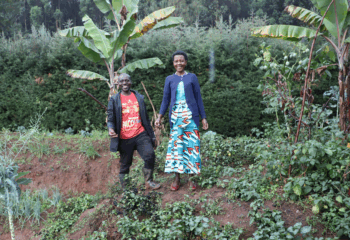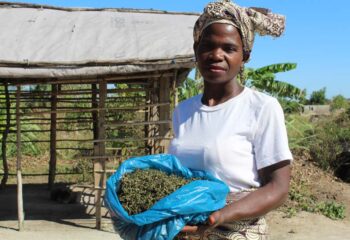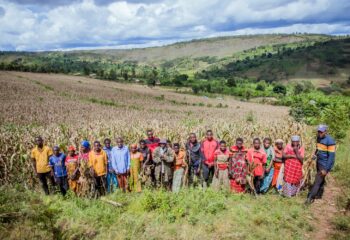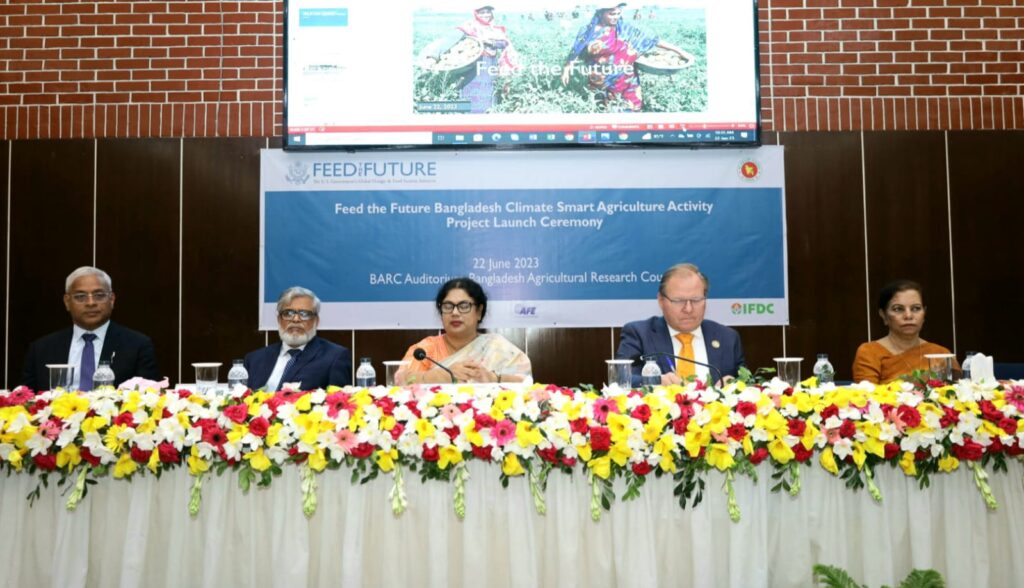
On June 22, the United States Agency for International Development (USAID) and IFDC celebrated the official launch of the Feed the Future Bangladesh Climate-Smart Agriculture Project, which aims to facilitate sustainable productivity and crop diversity for smallholder farmers through a more resilient, inclusive food and agriculture production system. The project seeks to benefit over 900,000 smallholder farmers in Bangladesh.
Hosted by IFDC at the Bangladesh Agricultural Research Council (BARC) auditorium, the launch provided an opportunity for stakeholders to discuss the improvements needed in smallholder farmers’ access to and use of high-quality climate-smart agriculture (CSA) technologies, methodologies, and inputs, as well as the potential benefits of the project, including food and nutrition security, poverty reduction, and increased resilience to shocks and climate change-related events. With support from project partner Action for Enterprise and the Bangladesh Ministry of Agriculture, as well as its research institutes and extension departments, the event demonstrated the broad interest in agricultural investments and innovations for Bangladesh.
Attendees were presented with an insightful program of events, including presentations from IFDC President and CEO Henk van Duijn, USAID/Bangladesh Director of Economic Growth Programs Dr. Muhammad Khan, Secretary of the Bangladesh Ministry of Agriculture Wahida Akter, BARC Executive Chairman Dr. Shaikh Mohammad Bokhtiar, and Chief of Party for the Feed the Future Bangladesh Climate-Smart Agriculture Project Ishrat Jahan.
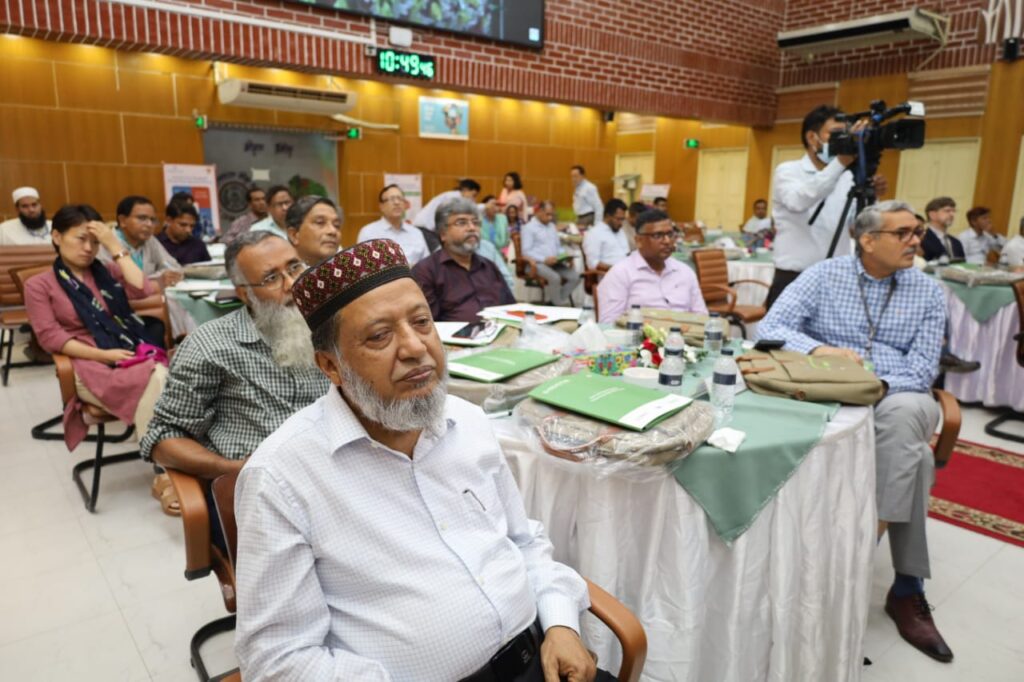
As a testament to the impact of IFDC’s work in Bangladesh, an entrepreneur who benefited from IFDC’s USAID-funded Improved Livelihood for Sidr-Affected Rice Farmers (ILSAFARM) project shared her growing business success since the project completed its work in 2010. After her motivational presentation, van Duijn explained the project’s plan to promote economic growth, sustainable farming practices, private sector development, and climate resilience throughout 21 Feed the Future Zones of Influence, while also creating significant cost savings for local farmers and the Government of Bangladesh.
Van Duijn delved into specific project objectives, including increased uptake and adoption of CSA practices. The project will promote integrated soil fertility management (ISFM), high-quality seed adoption, improved water and soil management, and conservation agriculture. As such, balanced fertilizer application, site- and crop-specific fertilizer recommendations, biofertilizer use, and scale-up of fertilizer deep placement (FDP) will increase soil health, agricultural productivity, and the sustainability of fertilizer use in the country.
Van Duijn emphasized that IFDC has worked to establish a legacy of success surrounding CSA since its establishment in 1974. With a focus on CSA for food security, the Feed the Future Climate-Smart Agriculture Project will continue this half-century legacy with the support of USAID and the private sector.
Next, Khan highlighted the long-term relationship between the United States and Bangladesh, which is based on a mutual interest in reducing poverty and increasing nutrition. He said that Bangladesh’s continued classification as a Feed the Future target country represents the country’s commitment to agriculture, food security, and nutritious foods.
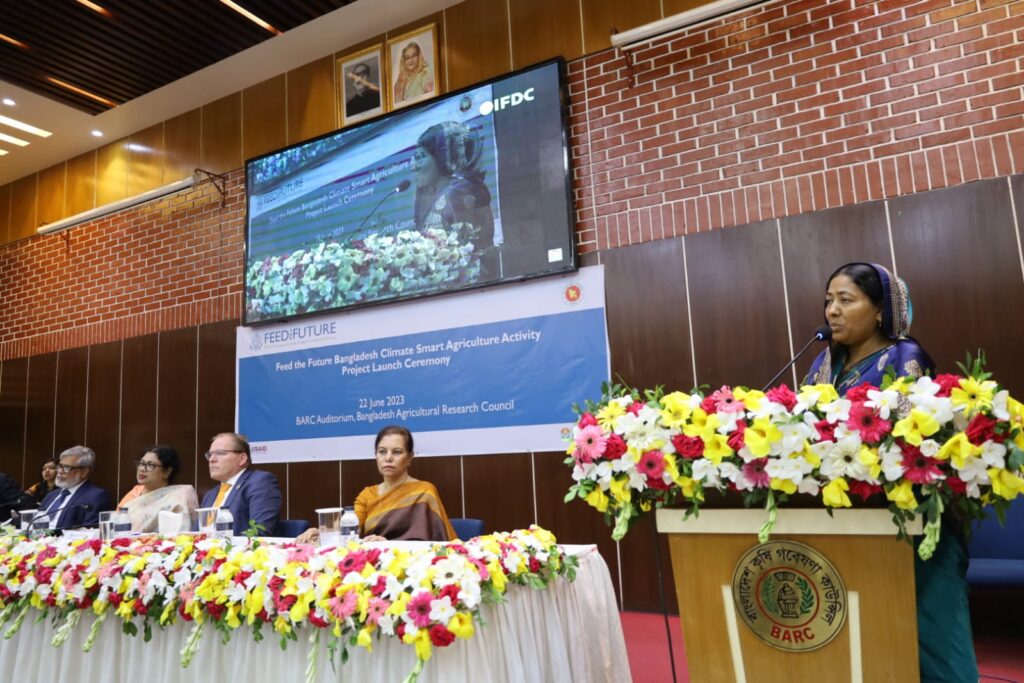
Khan added that there is an increased need for CSA in Bangladesh, noting the impacts of climate change and extreme weather events have taken a toll on the local agriculture sector. He explained that USAID is confident the project’s CSA approach will maximize local productivity and sustainability.
“Let’s work together to create a country where no one goes to bed hungry.”
Dr. Muhammad Khan, USAID/Bangladesh Director of Economic Growth Programs
Akter then shared the ministry’s pride in and appreciation for the farmers who will participate in the project. She said the ministry was impressed with the project’s approach. Akter emphasized the importance of improved water, crop, and soil protection for sustainability and nutrition and discussed the importance of prioritizing CSA and an enabling environment for government and policy work. She also mentioned that efficient fertilizer use and water preservation for irrigation are important to Bangladeshi agriculture, and she’s glad to see those elements featured in the project strategy.
In closing, Akter stated, “We must save our soil. We must save our water sources. We must save our future generations.” She expressed her confidence in the project’s success over the next five years.
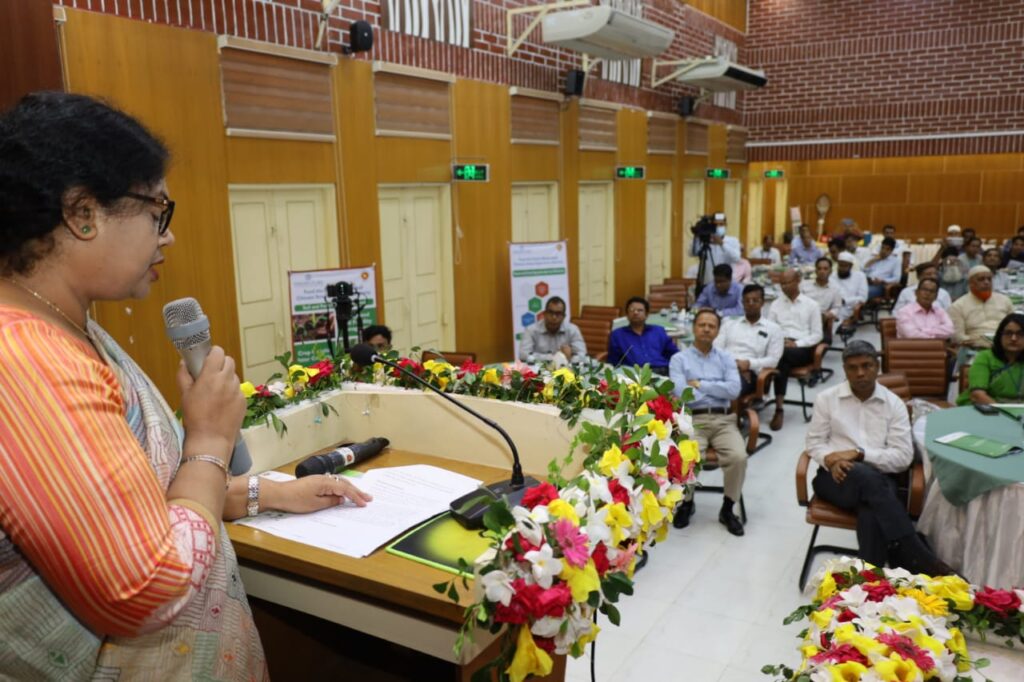
Jahan concluded the launch with an overview of the project, sharing how the project relates to the global perception of climate change and noting that sustainable productivity and diversity for farmers will increase the country’s food security and nutritional status. She highlighted the project’s geographical coverage, implementation strategy, intermediate results, and project targets. Her speech closed with the sentiment, “Even if we only achieve 25-30% of what we set out to do, we will still be successful.”
The Feed the Future Bangladesh Climate-Smart Agriculture Project is funded by USAID under Feed the Future, the U.S. Government’s global hunger and food security initiative, and led by IFDC, with support from Action for Enterprise and the Ministry of Agriculture, including its research institutes and extension departments. The project is expected to run from 2023 to 2028.
For more information about the Feed the Future Bangladesh Climate-Smart Agriculture Project, please visit https://ifdc.org/projects/feed-the-future-bangladesh-climate-smart-agriculture-project/.

